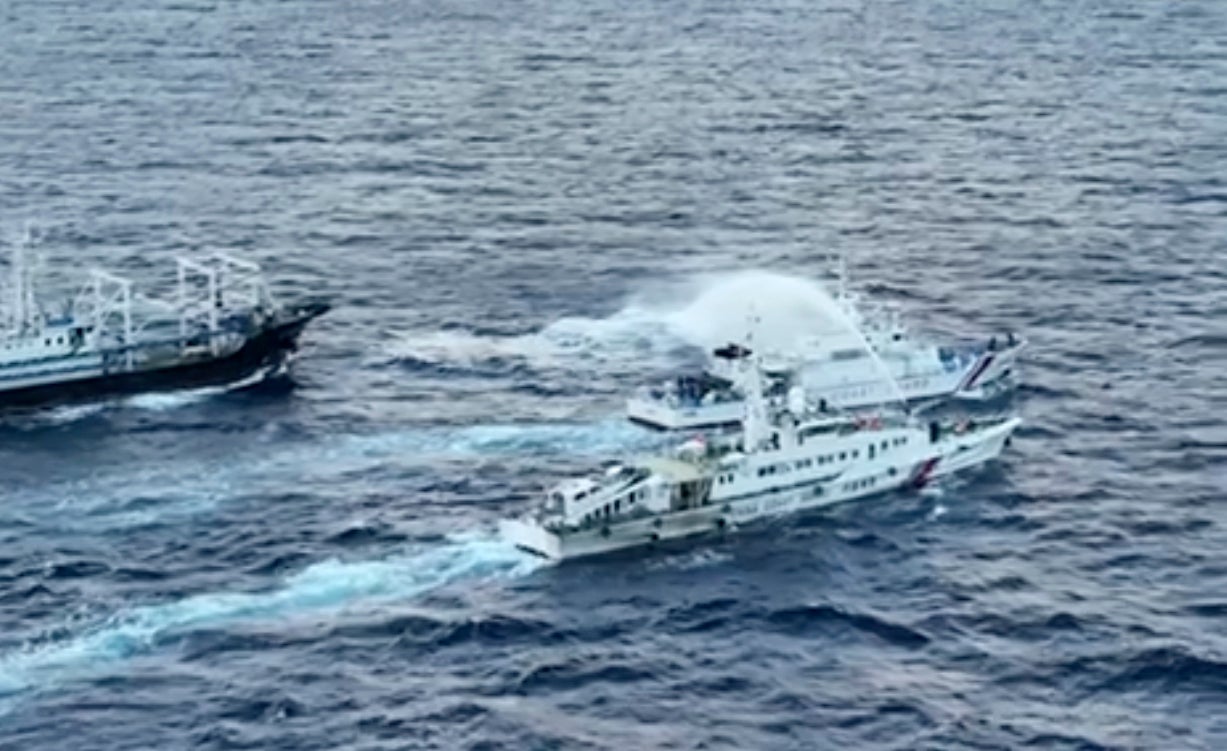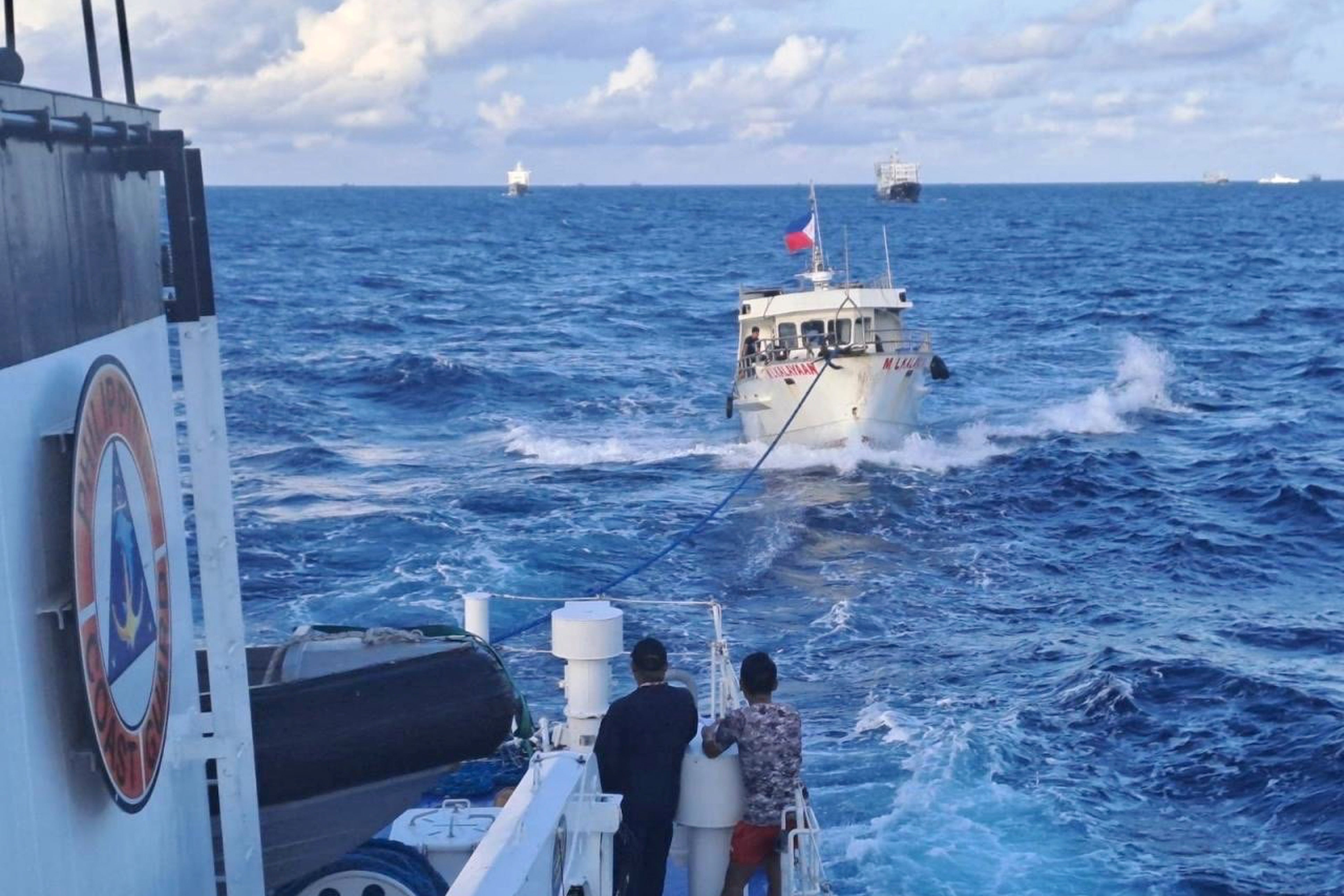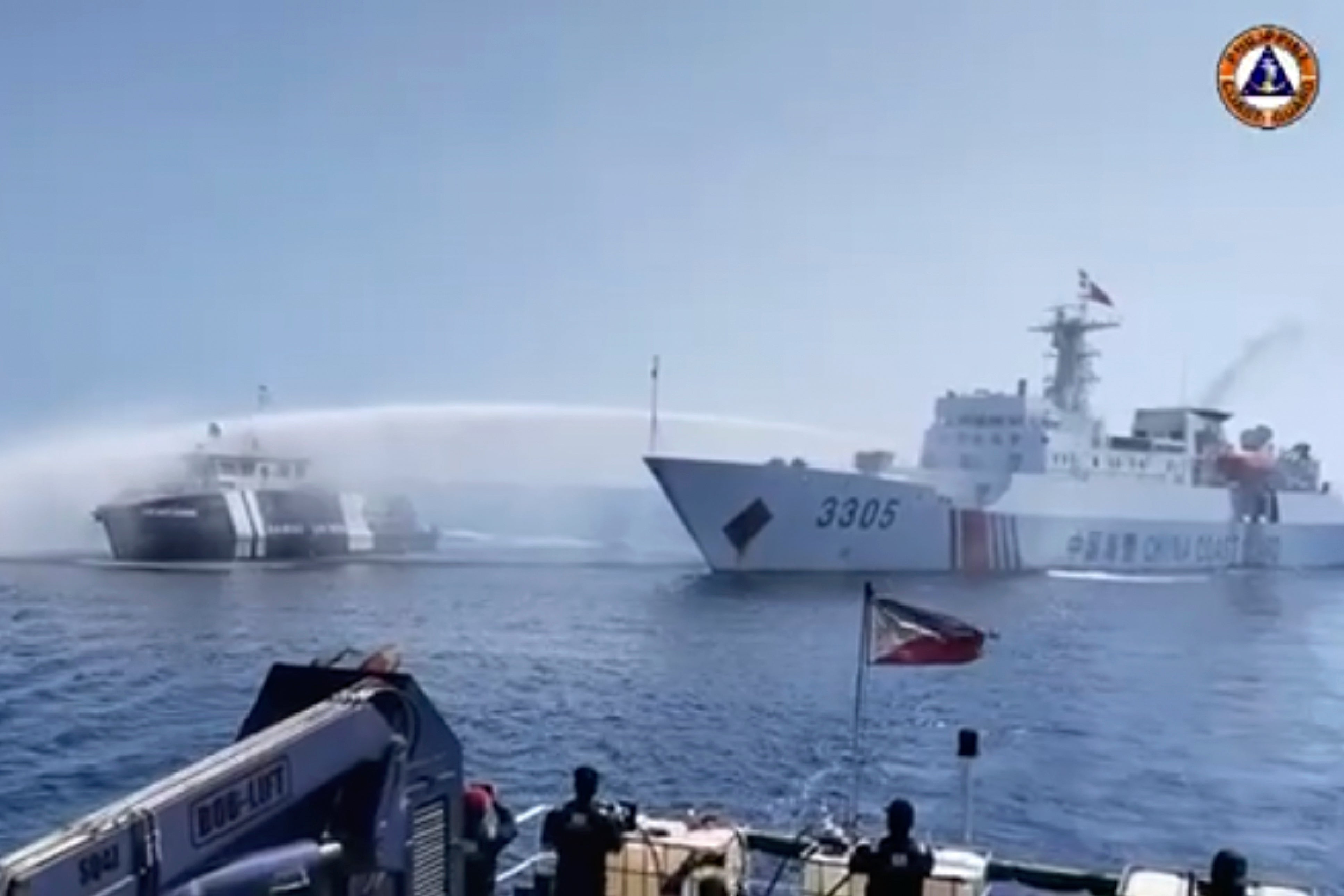New clashes between Chinese and Philippine ships as row over disputed islands escalates
Philippines accuses Chinese coastguard of attacking its vessels with water cannon
The Chinese and Philippine coastguards engaged in a heated confrontation on Sunday following a collision between their vessels in the South China Sea.
The Philippines claims that the Chinese coastguard assaulted three of their vessels with water cannon blasts and rammed one of them, causing “serious engine damage”, while China’s coastguard accused the Filipinos of intentionally ramming their ship.
The Philippines and its ally the United States condemned the latest confrontation near the Second Thomas Shoal, which is part of what is known internationally as the Spratly Islands.
The latest row comes a day after the Chinese coast guard and accompanying ships trained water cannons at three Philippine fisheries vessels to prevent them from approaching Scarborough Shoal in the disputed waters off the north-western Philippines.
Beijing and Manila have been repeatedly clashing around the uninhabited territory in the Philippines’ exclusive economic zone, where the Philippines deploys resupply missions for Filipino soldiers living aboard an ageing warship deliberately run aground in 1999 to protect Manila’s maritime claims.
Two Philippine navy-operated supply boats and two Philippine coastguard escort ships operate in the area to deliver food and other supplies to forces in the long-marooned ship serving as a territorial outpost.
"We condemn, once again, China’s latest unprovoked acts of coercion and dangerous manoeuvres against a legitimate and routine Philippine rotation and resupply mission to Ayungin Shoal that has put the lives of our people at risk," a Philippine government task force that deals with the territorial disputes said in a statement.

"The systematic and consistent manner in which the People’s Republic of China carries out these illegal and irresponsible actions puts into question and significant doubt the sincerity of its calls for peaceful dialogue," it said. "We demand that China demonstrate that it is a responsible and trustworthy member of the international community."
Responding to the accusations, China’s coastguard said that two Philippine vessels ignored repeated warnings and "illegally entered the waters adjacent to Ren’ai Reef in the Nansha Islands without the approval of the Chinese government”.

It said the Unaizah Mae 1 "made an unprofessional and dangerous sudden turn, intentionally ramming into China Coast Guard vessel 21556.”
"The responsibility lies entirely with the Philippine side," the coastguard said.
China’s ships, which have surrounded the Philippine-occupied Second Thomas Shoal for years, have repeatedly blocked the Philippine coastguard and supply boats in a years-long effort to take control of the hotly disputed atoll claimed by both nations.

Earlier on Saturday, the assault by China caused "significant damage" to the communication and navigation equipment of one of the three Philippine Bureau of Fisheries and Aquatic Resources vessels, Philippine officials said. While Manilla condemned the "illegal and aggressive actions", Beijing defended the move calling them legitimate "control measures".
The hostilities, which have grown increasingly heated this year, have stoked fears of an armed conflict that could involve the United States, which has vowed to defend the Philippines, its treaty ally, if Filipino forces come under an armed attack.
Earlier on Sunday US Ambassador to Manila MaryKay Carlson stated solidarity with the Philippines. She said her country "stands with the Philippines and partners in vehemently condemning the PRC’s repeated illegal and dangerous actions against Philippine vessels".
"(Chinese) aggression undermines regional stability in defiance of a free and open Indo-Pacific," Ms Carlson added.
Additional reporting by agencies
Join our commenting forum
Join thought-provoking conversations, follow other Independent readers and see their replies
Comments
Bookmark popover
Removed from bookmarks